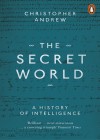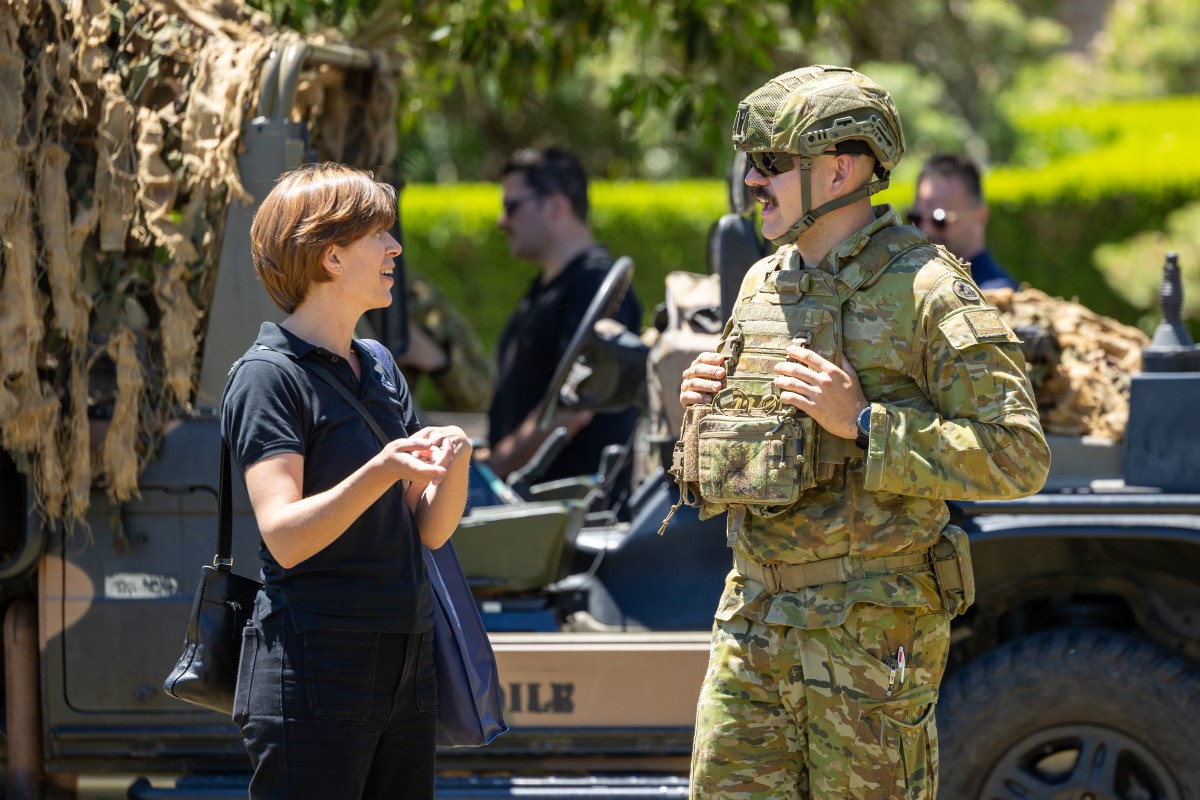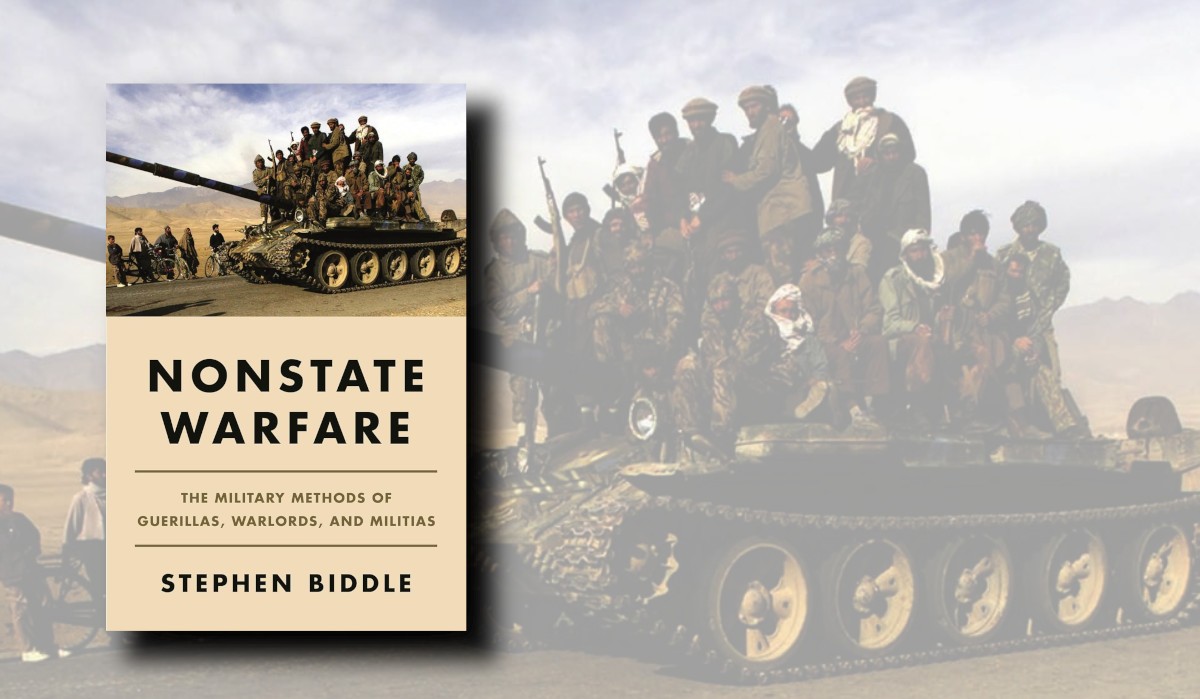A History of Intelligence
Penguin Press, New York, 2018, 948 pp
Paperback ISBN: 9780140285321
eBook ISBN: 9780241305225
Author: Christopher Andrew
Reviewed By: Dejan Mujkanovic
Christopher Andrew's The Secret World: A History of Intelligence provides an overview of the evolution of intelligence tradecraft and related disciplines throughout history by examining the relevance of intelligence to decision-making from ancient to modern eras. Andrew is an Emeritus Professor of Modern and Contemporary History at the University of Cambridge, having published several books including the official history of MI5 as well as several books on the KGB.[1]
The Secret World is a journey grounded in history and contextualised through the prism of contemporary intelligence disciplines. The book is a testament to Andrew's academic rigour, drawing extensively on his strengths as a historian. Within his introduction, Andrew states his fundamental premise, namely that intelligence is always relevant.[2] Utilising a rich historical source base, Andrew then commences his episodic chapters, each of which covers a particular historical event or theme, all working to solidify his thesis concerning the importance of intelligence to rulers and governments.
The book analyses the history of intelligence collection, starting with anecdotes from biblical times, working through key historical periods, and concluding with intelligence support to the series of conflicts in the Middle East that resulted from the 9/11 terrorist attacks in 2001. The book dedicates 30 chapters to cover 2000 years, highlighting key events and technologies while not getting lost in detail. Of particular note are the chapters on Islamic Intelligence during Muhammad’s era, intelligence apparatus in Renaissance Venice and, chapters dealing with the World War II period. In these chapters, the author demonstrates the evolution of significant improvements in codebreaking and organisation of intelligence enterprise that enable key decision makers to better understand their adversaries.
Throughout the book, the author highlights the historical importance of intercepting official correspondence and the ongoing efforts to encrypt such information by those struggling to protect it. In doing so, Andrew provides a coherent historical narrative linking modern SIGINT agencies to their ancestors who developed cryptography. He highlights evolving codebreaking efforts from ancient specialists and mathematicians decoding encrypted letters to modern intelligence agencies accessing encrypted electronic traffic. The book prioritises the study of the evolution of SIGINT with greater attention than other disciplines as it is a key aspect of intelligence history and tradecraft. Andrew draws attention to some colourful individuals who have conducted HUMINT and engaged in deception throughout history, but only briefly covers the importance of industrial espionage. Further, the author offers a few examples of links between intelligence enterprises across the strategic, operational and tactical levels. He spends some time offering insights into the tactical and operational importance of Bletchley Park in Chapter 27 but otherwise focuses on intelligence implications on strategic decision-making. Again, this does not detract from the book's significance, but it highlights the author's struggle to comprehensively map the rich history of intelligence.
Andrew also contributes alternative views on significant historical events such as the role of intelligence in undermining King Charles I which is explored in Chapter 12 or, implications of Napoleon's disregard of his intelligence apparatus as highlighted in Chapter 17. He draws the reader's attention to what information was available to key historical figures and how such information may have influenced the outcomes of specific historical events. This important contribution to analysis of historical events places the availability, or lack of, intelligence at the centre of a person's decision, successfully arguing that intelligence enterprise directly contributes to successful decision-making. The author supports his argument by highlighting the work of extraordinary individuals such as cryptographer John Wallis in the 17th century or, Bletchley Park and Allies who successfully cracked their adversary's radio communication encryption, thus forwarning those the governments they supported. However, Andrew also draws the reader's attention to how little has been learned by successive generations on the importance of a competent intelligence enterprise. He argues that this lack of understanding led to some significant oversights and underinvestments that corroded effective national responses during major wars. These deficiencies were particularly evident in, for example, decisions by Napoleon to disregard intelligence or, decisions by the British to significantly underinvest in intelligence capabilities in decades leading to World War I.
Noting the amount of information presented in The Secret World, the book reads principally as an academic endeavour, delivering a handy reference on the relevance of intelligence to crucial historical events but at the expense of providing the reader with exciting prose. Throughout the book, the author seeks to fill an identified academic void on the subject by demonstrating the relevance of intelligence to high level decisions that still resonate across history. Notably, the book links such historical use of intelligence to contemporary tradecraft concepts. Andrew presents abundant information in the book that, although relating to well-known historical events, requires the reader to reference and research. To that end, the book reads slower than other books on similar subjects, as the central thread of the narrative examines extensive information otherwise captured on the edges and sidenotes of popular literature on history. In many senses, the book caters to the student of intelligence history while providing sufficient evidence to the casual reader that the topic is worthy of further attention.
Christopher Andrew's The Secret World: A History of Intelligence is a must-have addition to the library of individuals interested in studying the rich but often opaque history of intelligence tradecraft. The author builds on a significant intellectual foundation and wide research to examine key moments for intelligence agencies, celebrating those individuals and technologies purposefully hidden from the public eye, but critical to intelligence success. As Andrew implies, intelligence professionals often simultaneously struggle to 'look past the adversary's curtain' while working to get the resources or attention of those that most benefit from intelligence.[3] The author leaves much room for scholars to build on his work, making this book a valuable resource for researchers, enthusiasts, and practitioners of intelligence history and tradecraft alike. While at points Andrew’s book may be difficult to follow for those not well-versed in history or intelligence tradecraft, it avoids sensationalisation while covering several key historical events within the intelligence sphere. For those willing to engage with the book, they will find it a significant contribution to the serious study of intelligence.
Endnotes
[1] See Christopher Andrew, The Defence of the Realm: The Authorized History of MI5 (London: Penguin, 2010); Christopher Andrew and Vasili Mitrokhin, The Mitrokhin Archive: The KGB in Europe and the West (London: Penguin, 2018); Christopher Andrew and Oleg Gordievsky, KGB: The Inside Story of its Foreign Operations from Lenin to Gorbachev (New York: HarperCollins, 1992).
[2] Christopher Andrew, The Secret World: A History of Intelligence (New York: Penguin, 2018), 11.
[3] Andrew, The Secret World, 738, 760.



